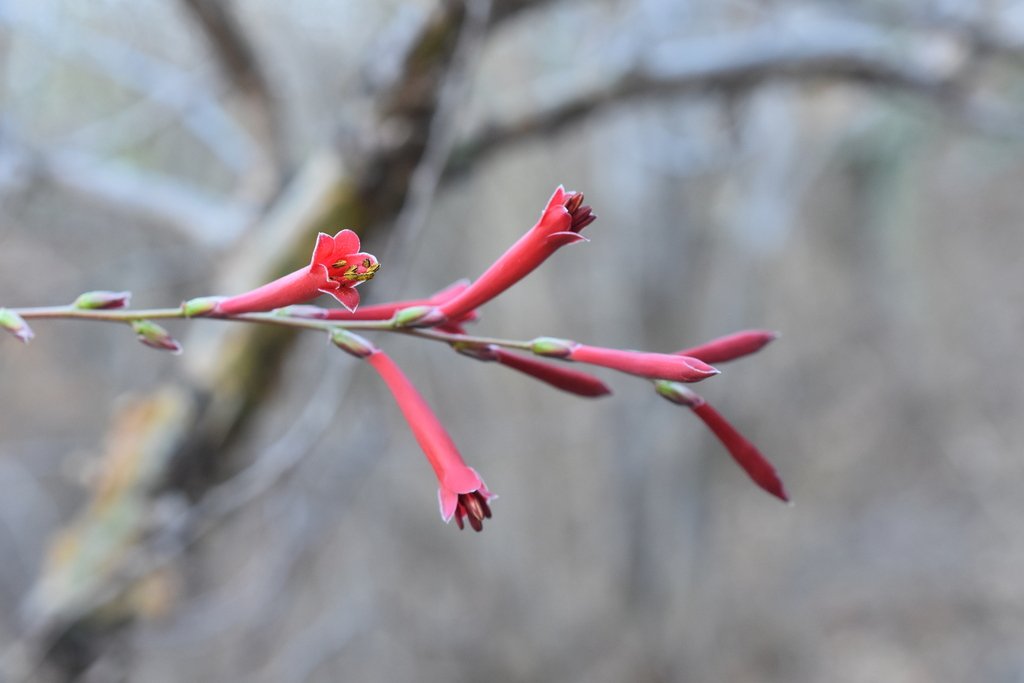Leonila's Ocotillo
Fouquieria leonilae
The species is very distinctive and vegetatively can be distinguished by its sparsely branched small tree habit consisting of one or more definite trunks covered with a smooth papery, bronze bark and the very slender, delicate, slight-spined young stems which are initially dark maroon but turn silver grey prior to developing the characteristic papery bark. The delicate, long, spicate inflorescences and dark-red decandrous flowers are also distinctive. This species has skinnier stems than other species.
Plant in full to part sun. Plants are drought tolerant but plants in the ground benefit from watering 2-3 times a month in summer (in containers, 2-3 times a week). In winter, keep on the dry side, but if it doesn’t rain, water them about once a month. Container plants should be lightly watered about once a week in winter. Plants are reported to be hardy to 20°F, but it is advisable to protect them from frost, especially younger plants.
The flowers are almost surely pollinated by hummingbirds.
Ethnobotanical uses are not well-documented but plants in this genus have been used as medicine almost wherever they occur. Flowers are edible.
The species name, leonilae, named for Leonila Vázquez García (17 January 1914 – 30 January 1995), entomologist at the Instituto de Biologia de la Universidad Nacional de Mexico. She was a Mexican entomologist. Vázquez described 39 species of plants and animals, including butterflies, mites, crustaceans, nematodes, and plants.
known only from Cafion del Zopilote south of the Rio Balsas (Rio Mexcala) in the state of Guerrero where it is common from 1600 to 3600’ on rocky hillsides on outcroppings of a whitish, possibly gypseous or calcareous soil. This species is endangered.
We apologize for the lack of photos of this species, but it is rare and there is very little information (and thus pictures) online.

This is a plant we have growing at our home.

